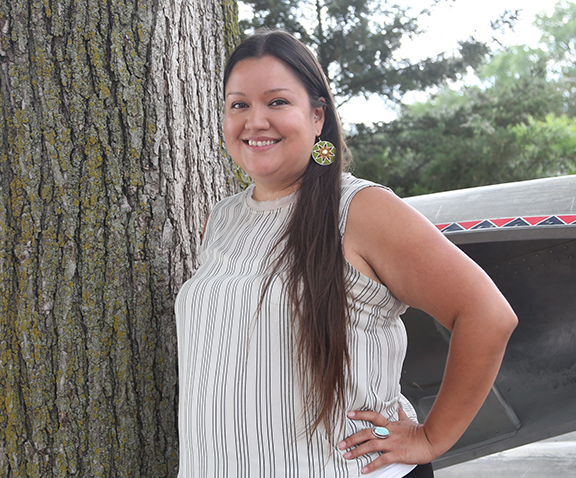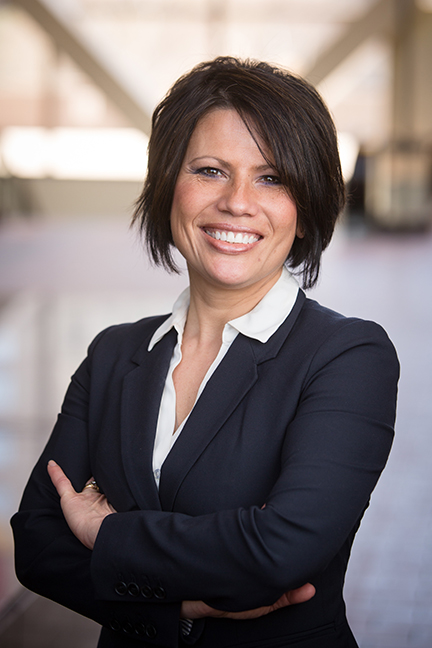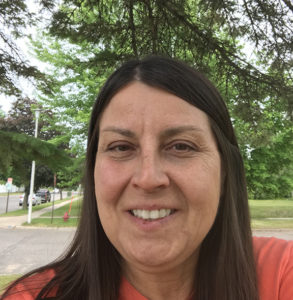Fostering Native Children Brings Amazing Rewards
- Liz Hill

- Jul 1, 2019
- 8 min read
LouAnn and Bryan Blackhawk are a shining example of a couple that has stepped up in an inspirational way to foster Native children. Bryan is an enrolled citizen of the Ho-Chunk Nation in Winnebago, Nebraska and LouAnn is non-Native.
The Blackhawks began fostering when their three adult children were starting college and finishing high school. Over the past 12 years, they have fostered more than 100 children. Ninety percent of the children have been Native. The identities of children in out-of-home placement are protected by data privacy laws, so they cannot be publicly named without their parents’ approval.
“We have adopted Shilah, who came to us as a newborn eleven years ago,” says LouAnn. “We have taken legal custody of two boys, ages 6 and 9, three years ago. Just recently we took legal custody of two little girls, ages 6 and 3 – these two girls have been in our home three times and they have finally found their forever home with us. We have a ten-year-old girl who we absolutely love, and we hope that we will be her forever home too.”
Culture has played an important part of the family’s life. “We were able to bring them to Native church meetings, powwows and family gatherings,” says LouAnn. “For instance, one evening when Bryan was getting ready to go to an all-night meeting, one of our kiddos, who was nine years old at the time, asked Bryan what he was going to be doing at the meeting.”
“Bryan explained to her that he would be sitting around the sacred fire singing, drumming and praying, and he explained that he would be praying for all of them, too.”
“She asked about praying for her family as she was worried about her parents,” remembers LouAnn. “Bryan asked her to join him, so she along with a couple other children went with him and stayed up for most of the night.”
“We feel these kinds of experiences are very important,” says LouAnn.
The Blackhawks say there have been “many heartbreaks” but that the “rewards are amazing,” and they are blessed to make a difference in so many children’s lives.

A Gold Standard of Foster Care A recent New York Times article by Jan Hoffman titled, “Who Can Adopt a Native American Child? A Texas Couple vs. 573 Tribes” (June 5, 2019) focused on a high-profile federal custody court challenge to the Indian Child Welfare Act (ICWA). ICWA, which became federal law in 1978, was enacted to “protect the best interest of Indian Children and to promote the stability and security of Indian tribes and families by the establishment of minimum Federal standards for the removal of Indian children and placement of such children in homes which will reflect the unique values of Indian culture.” (25 U.S.C. 1902). In the article, Minneapolis (Hennepin County) and Los Angeles, California were cited as places with “judges, lawyers and social workers trained in Indian cultural sensitivities” and as places where “the law has significantly helped reunite families.”
The article also states, “Indeed, the pillars of the law – giving services to shattered families to avoid prolonged foster care; placing children with relatives rather than strangers; acknowledging cultural identity – have been called a ‘gold standard’ by leading child welfare agencies.”
In Minnesota, ICWA is enforced by the State and Native nations. Hennepin County works with children, their families and their tribes to place children with relatives whenever possible, according to the first placement preference in ICWA, in order to reduce trauma for children who must be placed in foster care to ensure their safety. The County makes placement decisions with the tribes’ involvement, permission and qualified expert testimony.
On June 19, 2019 [the latest statistics] there were 1,875 children and youth in out-of-home placement in Hennepin County. Of those, 270 or 14 percent are identified as American Indian/Alaska Native. Note, there may actually be additional children who are American Indian/Alaska Native, but who are identified in this data as “Multiracial” or “Unknown.” Some of these children are already in Native foster homes.
Today, Hennepin County has approximately 55 licensed foster homes with at least one parent who identifies as American Indian; many of those are licensed to care for children to whom they are related.

Family/kinship/support means everything to one foster mother Lisa Skjefte, Ojibwe and a citizen of Red Lake Nation, is passionate about being a foster mother to her second cousin Myla. In 2017, while attending her grandmother’s funeral in Redby, a town on the Red Lake Reservation, Red Lake’s Family Services Director, who was attending the funeral, figured out that Lisa was a relative of the family. When baby Myla’s name emerged during tribal reviews, Lisa was named as a relative and she was asked if she would be able to foster her.
“At the time I had never done foster care,” says Lisa, who held a first-year birthday party for Myla shortly after she arrived. “A lot of the family came to the party, including her four siblings, her grandmother, other relatives, aunties, a great aunt and cousins. Everyone was happy that Myla was surrounded by family.”
“After that, my cousin (Myla’s mother) contacted me and we learned what the requirements were to start working on her case plan, which included her going into treatment,” says Lisa. “She did her program and we stayed super connected.”
“From the get-go I just knew my cousin had the support and guidance from all of us so that she could be successful and reunified with Myla,” says Lisa.
“I support mothers and I support families being reunified,” says Lisa. “I fundamentally knew that going in.”
“I believe that Myla belongs with her mother, and that her mother deserves the chance to be healthy and have the accesses to support her to be healthy,” says Lisa. “I made a commitment to Myla. Had her mother not been able to be supported in her recovery and had that not happened, I was committed to being ready to step up and be her caretaker for as long as she needed.”
Knowing Native history and Importance of community is key Sandra West is an enrolled citizen of the White Earth Band of Ojibwe. Based in Brainerd in north central Minnesota, she is Child Services Worker for Hennepin County, a job that she has been in for just under a year. Sandra’s role is to support Hennepin County Native children who have been separated from their parents. It’s the first time that Hennepin County has had such a position.
“All of the children I work with are with relatives who live on reservations all over Minnesota,” says Sandra. This is where Sandra comes in, providing services and support.
“Being up north, I have a lot more accessibility and a lot more time to see all of the children,” says Sandra. “They still have a child protection social worker in Minneapolis, but it makes sense for me to see many children in a day, see the children more often, and it’s easier for me to set up services from here.”
Sandra and Lisa are acutely aware of how colonization has affected Native people and how historical trauma has been passed down through generations.
“If you talk to a lot our elders, they will point to residential boarding schools as one of most destructive things that happened to our communities and our tribes,” notes Lisa. “A lot of our elders will pinpoint this moment in history as what has been broken in our communities.”
“Historically, when children are taken away from moms it’s hard for them to know how to be a parent – it’s that generation and it just trickles down to the next generation,” says Sandra. “So, with all of the services for our children, I always make sure the person has a trauma-based therapist because most of the children have been traumatized.”
“Some of our foster parents are great grandmothers, elders, so they experienced this trauma first-hand and it’s really important to be sensitive to that,” notes Sandra.
“It’s generational and there is a process of healing,” says Sandra. “It comes from when there were boarding schools and it’s going to take more years of healing.”
“When we are talking about our kids who are in placement we have to talk about the history of colonization of Native people and we have to link how history and current practices are related in order to understand,” says Lisa. “We need to learn from our history and we need to encourage other Native people to become foster parents to Native kids.”

Our Children are the Future, the Seventh Generation Caring for the most vulnerable – children – is central to Hennepin County’s Child Protection Services’ mission.
According to Hennepin County, there are approximately 30 people currently in the pipeline to be approved as ICWA foster care providers. It’s too soon to tell how many will be approved. Many are going through the licensing process in order to care for children related to them. The County is always looking for new ways to bring new non-relative Native American families forward to become foster parents.
“When American Indian children must be separated from their parents, it is so important for them to have places to go that are familiar and welcoming,” says Jodi Wentland, Hennepin County Assistant County Administrator. “That means increasing the number of Native American foster care homes to meet the number of children needing care.”
“We were required to take some information classes and, of course, they do a background check,” says LouAnn. “After being licensed you just need to take 12 hours a year of classes and/or groups that the County offers.”
“The classes have some great information with lots of resources,” says LouAnn. “The classes also help you to understand what and how to deal with many of the problems you will encounter with these kiddos.”
However, a decades-old offense may prevent a prospective foster parent from passing criminal and social services background checks. “I think it’s a huge issue that impacts many,” says Lisa.
Indeed, officials at Hennepin County – aware of the painful history between social services and Native families – continue to work diligently with the State to reduce this and other barriers to licensure as they impact prospective Native foster parents.
“We are working to increase connections with family members and friends and address barriers to licensure as we collaborate with tribes and other organizations that advocate for healing and cultural belonging for Native children while they are in the foster care system,” says Jodi.
“Any time a child or children are reunited with their parents – or get a forever home – that makes me really proud…it’s the ultimate success,” says Sandra. “But it’s not just me making that decision because there’s a child protection services worker in the Cities who is working really hard.” It’s a collective effort.
“[I know I’ve done a good job] when children are happy and they feel safe and are thriving; that is, doing well in school or are in a good home,” says Sandra. “I think that’s what we all try to do. That’s why we do this.”
“These kiddos are scared, angry and sometimes have mental health issues that need addressing,” says LouAnn. “But mostly they just need a hug, a kind word, a smile, someone to read a book or color with them. We can honestly say that we have never regretted making this choice.”
“Children want to be in a loving home where they feel accepted and have a chance to connect with their culture,” says Sandra. “Even kids who have been in the Cities and have never been to a powwow…when they go up north…especially the ones who are a little bit older…they love it. They just want to learn. I’ve seen that many times.”
“Our prophesies and our cultural teachings say that our children are our future – they are the Seventh Generation,” says Lisa. “So how are we preserving and protecting them? How can we can keep them in our communities so they have a sense of purpose and sense of knowing of where they belong? We need to learn from our history and we need to encourage other people to become foster parents of Native kids.”
To learn more about foster care in Hennepin County, visit the website at: https://www.hennepin.us/fostercare. This article was sponsored by Hennepin County Foster Care.







Comments